The effectiveness and safety of lactase enzyme supplements in reducing the symptoms of lactose intolerance has been widely researched over many years.
We have included a wide range of lactase enzyme research in the papers below, and hope that this is of benefit to both healthcare professionals and our customers. We will be adding more papers to this page regularly.
Lactase Enzyme & Health Research
Effects of Lactase on Symptoms and Hydrogen Breath Levels in Lactose Intolerance – A Crossover Placebo‐Controlled Study
Rajiv Baijal and Rakesh K Tandon
Institute of Gastroenterology, Pushpawati Singhania Hospital and Research Institute, New Delhi, India
This was a randomised, double-blind, crossover placebo-controlled trial to study the effect of lactase tablets on symptoms and hydrogen breath levels (HBT) in adults with lactose intolerance, confirmed by Lactose HBT. Conclusions: Orally supplemented lactase enzyme significantly reduced the clinical symptoms and hydrogen breath excretion in patients with lactose intolerance.
Scientific Opinion on the Substantiation of Health Claims Related to Lactase Enzyme and Breaking Down Lactose.
European Food Safety Authority (EFSA), Parma, Italy.
EFSA Journal 2009; 7(9):1236
This opinion addresses the scientific substantiation of health claims in relation to lactase enzyme and breaking down lactose. The Panel concludes that a cause and effect relationship has been established between the consumption of lactase enzyme and breaking down lactose in individuals with symptomatic lactose maldigestion.
Efficacy of Addition of Exogenous Lactase to Milk in Adult Lactase Deficiency
Fernando Lami, M.D., Carla Callegari, M.D., Massimo Tatali, M.D., Lucia Graziano, M.D., Cristina Guidetti, M.D., Mario Miglioli, M.D., and Luigi Barbara, M.D.
The American Journal of Gastroenterology, Vol 83, No 10, 1988
This study evaluated the lactose hydrolysis efficiency of a liquid enzyme preparation, added to milk immediately before consumption, or previously incubated with milk, in lactose malabsorbers.
Results: The addition of this lactase to milk seems to be effective in correcting lactose malabsorption, thus representing a convenient approach to milk intolerance.
Some New and Important Clues to the Causes of Colic
Mary Buckley, BEd MPMII, Colief Infant Drops
British Journal of Midwifery, May 2000, Vol 8, No 5.
Review of presentation, prevalence and aetiology of colic, and recommendations regarding treatment concentrating on the role of transient lactose intolerance and use of lactase enzyme drops.
Beneficial Effects of Oral Tilactase on Patients with Hypolactasia
University Medical School, Bari, Italy and Harvard Medical School and Harvard Digestive Diseases Centre, Boston, MA USA
Portincase P, et al 2008
This study tested the effectiveness of orally administered tilactase on gastrointestinal symptoms and hydrogen breath excretion in a large group of adults with hypolactasia.
Conclusion: A single oral administration of tilactase is highly effective in decreasing symptoms and hydrogen excretion of hypolactasia assessed by a hydrogen breath test.
Effect of Lactase Preparations in Asymptomatic Individuals with Lactase Deficiency – Gastric Digestion of Lactose and Breath Hydrogen Analysis
Original Paper
Gao KP, et al, 2002
A comparison of two lactase preparations for stability on the stomach and overall enzymatic activity in 10 asymptomatic subjects with lactase deficiency.
Conclusion: Lactase preparations are effective assessed by breath hydrogen analysis in asymptomatic individuals with lactase deficiency if the enzymes are given simultaneously with milk.
Enzyme Replacement for Lactose Malabsorption Using a Beta-D-Galactosidase
Di Palma et al, 1998
An evaluation of 10 healthy symptomatic lactose malabsorbers for effect of an oral Beta –D– Galactosidase on symptom and breath hydrogen response to lactose.
Conclusion: Lactrase Beta-D-Galactosidase from Aspergillus oryzae hydrolyzes lactose in vivo and is associated with a reduction in symptoms. It can be effectively and conveniently administered at mealtime.
Infant & Children Research
Improvement of Symptoms in Infant Colic Following Reduction of Lactose Load with Lactase
D. Kanabar, M. Randhawa and P. Clayton. Department of Peadiatrics, Guy’s Hospital, London, UK; #Crosscare Ltd, Dublin, Ireland
The British Dietetic Association 2001 J Hum Nutr Dietet, 14, pp: 359-363
A double-blind randomised placebo controlled crossover study to investigate whether transient lactose intolerance is a causative factor in infant colic. The findings suggest that infant colic may have a multiple aetiology, and that in a significant number of cases the immediate cause is transient lactose intolerance, in which cases pre-treatment of feeds with lactase can result in considerable symptomatic benefits.
Enhanced Weight Gain in Preterm Infants Receiving Lactase-Treated Feeds: A Randomized, Double-Blind, Controlled Trial.
Helen D Erasmus, BSc, RD, Heidi M. Ludwig-Auser, BSc, RD, Phyllis G. Paterson, PhD, Dongmei Sun, MSc, and Koravangattu Sankaran. MBBS, FRCP.
J Pediatrics, 2002 Oct; 141(4):532-7
Clinical study to evaluate whether lactase-treated preterm feeds enhance weight gain and feeding tolerance in premature infants. Findings show that weight gain may be enhanced during the period of low functional lactase activity of prematurity by addition of lactase to preterm feeds. No adverse effects on feeding tolerance resulted from this treatment.
A Trial of Lactase in the Management of Infant Colic
P.J. Kearney, A.J. Malone, T. Hayes, M. Cole and M. Hyland.
Journal of Human Nutrition and Dietetics (1998), 11, 281-285.
Randomized, double-blind crossover trial of lactase and placebo drops added to milk formula to determine whether this method of reducing lactose intake affected infant colic.
Transient lactose intolerance my have a role in the aetiology of infant colic. The effect of lactase was to reduce crying time by 1.14 hours per day.
Efficacy of Lactase-Treated Milk for Lactose-Intolerant Pediatric Patients
Jeffrey A. Biller, M.D., Sheila King, B.S., Andrea Rosenthal, B.S., and Richard J. Grand, M.D.
The Journal of Pediatrics, July 1987, Vol 111, No 1.
This study demonstrates that the addition of Lactrase just before ingestion of milk is effective in decreasing both hydrogen breath production and symptoms in children with lactose intolerance.
Breath Hydrogen Excretion in Infants with Colic
JJ Miller, P McVeagh, GH Fleet, P Petocz and JC Brand.
Archives of Disease in Childhood, 1989, 64, 725-729.
This study aimed to test the hypothesis that infants with colic absorbed lactose less efficiently than control infants.
Results showed that the percentage of infants with incomplete lactose absorption in the colic group was 62% compared with 32% in the control group. It was determined that increased breath hydrogen excretion indicative of incomplete lactose absorption may be either a cause or an effect of colic in infants.
Breath Hydrogen Excretion in Normal Newborn Infants in Response to Usual Feeding Patterns: Evidence for “Functional Lactase Insufficiency” Beyond the First Month of Life
Ronald G. Barr M.D.C.M., F.R.C.P.(C), James Hanley, Ph.D., D. Kingsnorth Patterson, Ph.D., and Judy Wooldridge, R.N., C.Q.S.W.
The Journal of Pediatrics 1984; 527
Incomplete lactose absorption in response to usual feeding patterns persists beyone the first months of life in 16 infants studied. Elevated breath H2 excretion demonstrates incomplete absorption it should not be used to determine an infant’s status as a lactose malabsorber.



